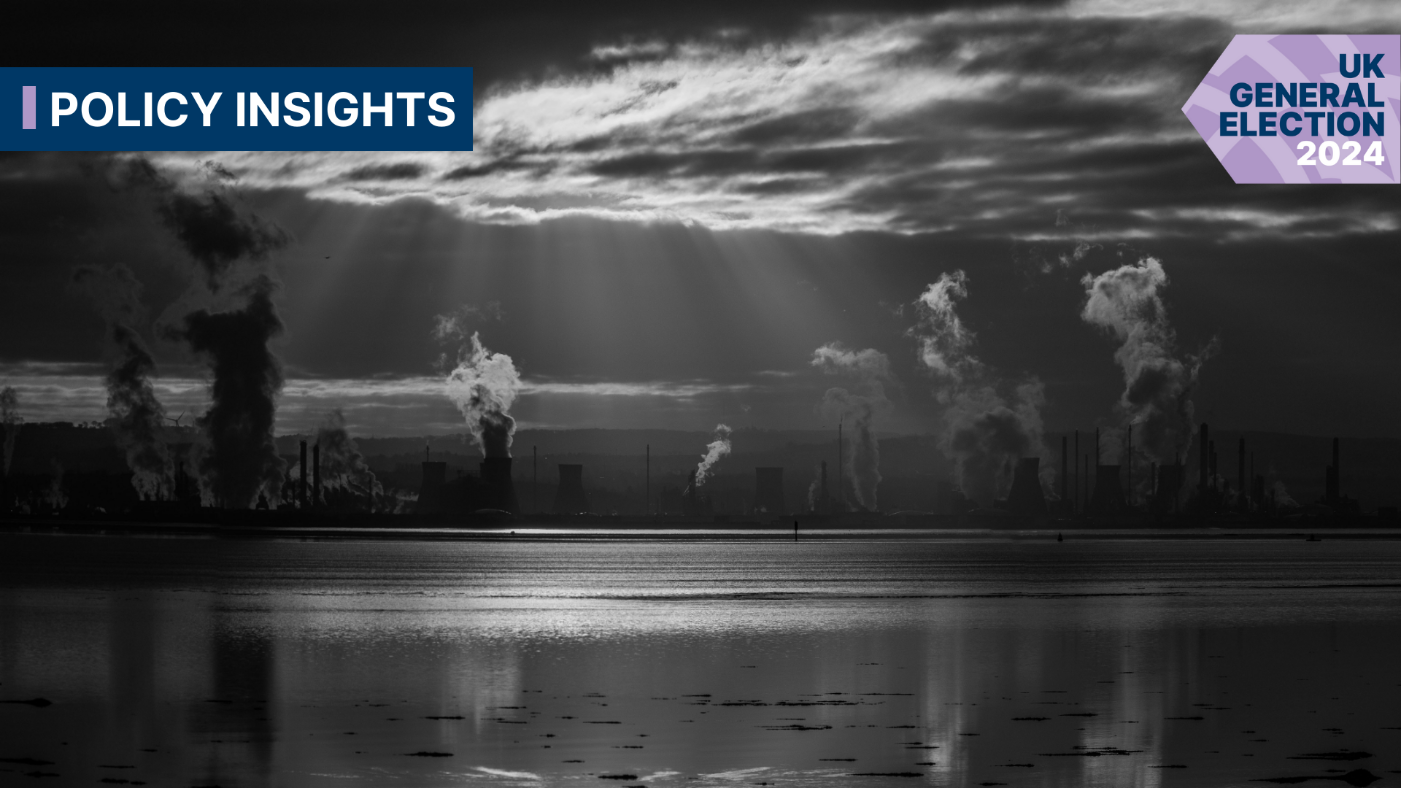This is an Energy Election
Published: 24 June 2024
Policy Insights: Dr Ewan Gibbs writes about the salience of energy policy in this election and how workers feel about the parties' pledges

This blog is part of the Centre for Public Policy UK General Election Policy Insights series.
Author: Dr Ewan Gibbs is a lecturer in Economic and Social History at the University of Glasgow. He is a historian of energy, industry, work and protest.
Lady Gaga’s Bad Romance blared out across a busying Bowhouse Community Centre in Grangemouth on the evening of 11th June. A confident young man, Chris Hamilton, the convener of the Unite branch at the town’s refinery, took the stage to address over one hundred attendees before they heard from seven election candidates. Hamilton explained the hustings had been called to mark the centenary of the refinery’s opening in June 1924.
Grangemouth’s relationship with oil had its heyday in the 1950s and 1960s, but its refining and chemicals workforce has since entered protracted decline. The ‘Keep Grangemouth Working’ campaign are determined to retain jobs in the town following the announcement by the refinery’s owner, Petroineos, that the plant would be replaced by an import terminal in 2025. This will lead to 400 job losses and closure of crucial national infrastructure.
The 2024 general election is an energy election. In the new Grangemouth and Alloa constituency, the Scottish National Party and the Labour Party are sparring over who will deliver prosperity for the refinery workforce. These themes are visible at a Scottish and UK level too though. During a Scottish Television leaders’ debate the previous week, Grangemouth was a dominant subject along with offshore oil and gas and renewables. Anas Sarwar defended Labour’s plans from criticisms from the SNP’s John Swinney and the Conservative’s Douglas Ross.
Swinney’s party have pushed the claim that Labour’s policies of marginal tax increases on oil and gas profits and not issuing new licences on climate grounds will cost 100,000 jobs. This factoid has been debunked by journalists Jamie Maxwell and Paul Dobson. Research by Uplift points out hundreds of thousands of jobs have been lost in the North Sea since the 2014 downturn. That’s unlikely to change whoever’s in power.
Rishi Sunak’s election announcement slowed down publication of research on Grangemouth workers’ views on closure which I completed with University of Glasgow PhD researcher, Riyoko Shibe, for the Just Transition Commission. Workers are highly ‘sceptical’ (a term directly taken from an interview) of pledges made by the Scottish and UK government promising a ‘just transition’. They’ve lived through redundancy and restructuring in recent years. The closure announcement comes despite record-breaking profits recorded at Grangemouth after the 2022 oil price spike.
At the hustings, Labour candidate, Brian Leishman, underlined his party’s commitment to a nationally owned Great British Energy company and a £1 billion Green Prosperity Fund. He was criticised by the SNP’s John Nicholson on the grounds it would serve London’s interests, not Scotland’s, and was an inadequate response given the demands of the transition.
Historian Colm Murphy observes parallels between the 2024 snap election and the two elections of 1974. Then as now, war and conflict stoked oil price and energy supply fears. Labour pledged a new national energy company headquartered in Scotland. The SNP prospered by insisting ‘it’s Scotland’s oil’.
For the workers and communities most invested in energy sectors, it’s the following decade which strikes the most fear though. On 15th June, Grangemouth workers marched in West Fife to commemorate the fortieth anniversary of the 1984-5 miners’ strike. Their campaign has repeatedly insisted that the refinery workforce won’t meet the fate of unemployment and impoverishment that befell the coalfields.
The election demonstrates that energy policy is a salient issue. It structures arguments over national security and the cost of living along with jobs and regional economies as well as climate change.
Photo by Malcolm Lightbody on Upsplash.
Tune in to our mini podcast series Spotlight: On the election.
We’re shining a light on the policy issues, the parties, key battlegrounds and events of the UK General Election, bringing you expert insights from the University of Glasgow and beyond.
Listen and subscribe on Spotify.
First published: 24 June 2024
Policy Insights
This blog is part of the Centre for Public Policy UK General Election Policy Insights series. The series shares research, knowledge and insights on the policy issues facing the country from key voices across the University of Glasgow and beyond.
Read more insights on our News and Insights page.
Mailing list
Sign up to the Centre for Public Policy mailing list to get the latest policy insights and our monthly newsletter straight to your inbox.

